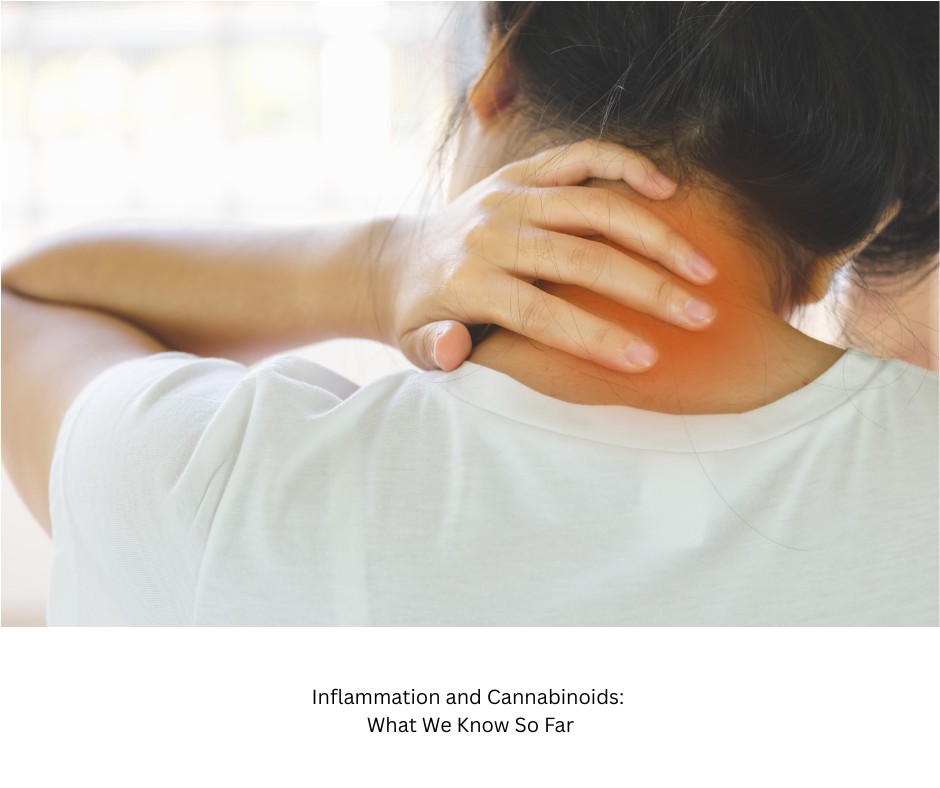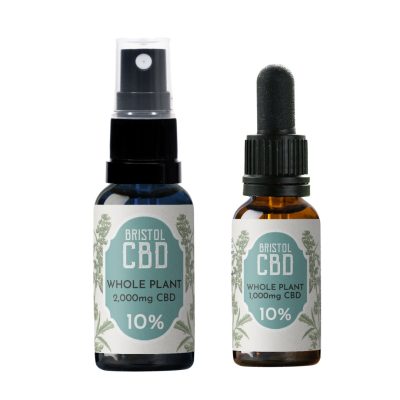Imagine twisting your ankle while hiking. It swells up, turns red, and hurts like crazy. That’s inflammation at work—your body’s natural response to injury. But what if inflammation doesn’t go away? What if it becomes a chronic issue, leading to ongoing pain and disease? That’s where cannabinoids, compounds found in the cannabis plant, might come into play. In this blog, we’ll explore how these fascinating molecules could help reduce inflammation and improve health.
1. What Is Inflammation?
Inflammation is the body’s way of protecting itself. When you’re injured or infected, your immune system springs into action, sending white blood cells and other defenses to the affected area. This causes the familiar signs: redness, swelling, heat, and pain. In the short term, inflammation is a good thing—it helps you heal. But when it becomes chronic, it’s like a fire that won’t go out. Chronic inflammation can damage healthy tissues and is linked to conditions like arthritis, heart disease, and even cancer.
- Acute inflammation: Short-term, helpful for healing (e.g., a sprained ankle).
- Chronic inflammation: Long-term, harmful, and often painful (e.g., rheumatoid arthritis).
2. What Are Cannabinoids?
Cannabinoids are a group of chemical compounds found in the cannabis plant. The most famous ones are THC (tetrahydrocannabinol), which is psychoactive and makes you feel “high,” and CBD (cannabidiol), which is non-psychoactive and often used for its potential health benefits. But there are over 100 different cannabinoids, each with unique properties.
Your body also produces its own cannabinoids, called endocannabinoids, which are part of the endocannabinoid system (ECS). The ECS is like a control center that helps regulate various processes, including pain, mood, appetite, and—you guessed it—inflammation.
- THC: Psychoactive, can reduce pain and inflammation but may cause side effects like dizziness.
- CBD: Non-psychoactive, known for its anti-inflammatory and calming effects.
- Other cannabinoids: Compounds like CBG (cannabigerol) and CBN (cannabinol) are less studied but may also have anti-inflammatory properties.
3. How Do Cannabinoids Affect Inflammation?
Cannabinoids interact with the ECS through two main types of receptors: CB1 and CB2.
- CB1 receptors: Mostly found in the brain and nervous system, these are linked to the psychoactive effects of THC.
- CB2 receptors: Found mainly in the immune system, these play a key role in regulating inflammation.
When cannabinoids bind to CB2 receptors, they can help calm the immune response, reducing the production of pro-inflammatory molecules called cytokines. Think of it as turning down the heat on that internal fire. CBD, in particular, has been shown to suppress pro-inflammatory cytokines and boost anti-inflammatory ones, making it a promising candidate for managing inflammation.
- Example: In animal studies, CBD has reduced inflammation in models of arthritis and colitis.
- Human studies: Early trials suggest cannabinoids may help with conditions like multiple sclerosis and Crohn’s disease, but more research is needed.
Anti-Inflammatory Mechanisms of CBD
CBD’s anti-inflammatory effects have been extensively studied. It reduces inflammation by interacting with the ECS and other pathways, such as inhibiting the production of pro-inflammatory cytokines like tumor necrosis factor-alpha (TNF-α), interleukin-1β (IL-1β), IL-6, and interferon-gamma (IFN-γ). A systematic review of in vivo studies, published in PubMed, analyzed 20 studies on CBD and found it consistently reduced these cytokines, exerting a predominantly anti-inflammatory effect (The Effects of Cannabinoids on Pro- and Anti-Inflammatory Cytokines). This review also noted improvements in disease/disability in 24 studies, suggesting CBD’s potential in conditions like arthritis and inflammatory bowel disease. Additionally, CBD’s antioxidant properties help counteract oxidative stress, a trigger for inflammatory cascades, as discussed in Medical Cannabis Activity Against Inflammation.
Anti-Inflammatory Mechanisms of CBG
CBG, while less researched, shows promising anti-inflammatory potential. Early studies indicate it can lower levels of inflammatory messengers like TNF-α, IL-6, and IL-10, and inhibit the COX-2 enzyme, which is involved in pain and inflammatory responses, as detailed in Does CBG help inflammation?. CBG also binds to CB2 receptors and modulates transient receptor potential (TRP) channels, such as TRPA1, which may protect cells from apoptosis under oxidative stress, potentially benefiting conditions like rheumatoid arthritis (Anti-Inflammatory Effects of Cannabigerol in Rheumatoid Arthritis Synovial Fibroblasts). A study published in Molecules explored novel CBG derivatives (HUM-223, HUM-233, HUM-234), demonstrating their anti-inflammatory and analgesic properties in animal models, with HUM-234 also showing potential in preventing obesity-related inflammation (Novel CBG Derivatives Can Reduce Inflammation, Pain and Obesity). However, the evidence for CBG is limited, with only one study included in the systematic review, indicating a need for further research.
Comparative Analysis: CBD vs. CBG vs. THC
To summarize the comparative effects, the following table from the systematic review highlights the findings:
| Cannabinoid | Studies (n) | Pro-inflammatory Cytokines Reduced | Anti-inflammatory Effects Observed | Disease/Disability Improvement | Notes |
|---|---|---|---|---|---|
| CBD | 20 | TNF-α, IL-1β, IL-6, IFN-γ consistently reduced | Yes, in 22 studies (including CBD+THC) | Yes, in 24 studies | Predominantly anti-inflammatory |
| CBG | 1 | TNF-α, IL-1β, IL-6, IFN-γ reduced | Yes, in 22 studies (including CBD+THC) | Yes, in 24 studies | Limited data, anti-inflammatory |
| THC | 2 | No reduction in pro-inflammatory cytokines (n=3 studies including THC alone) | No increase in anti-inflammatory cytokines | Improved neuropathic pain in 1 study | No anti-inflammatory effect |
| CBD+THC | 2 | TNF-α, IL-1β, IL-6, IFN-γ reduced | Yes, in 22 studies | Yes, in 24 studies | Combined effect anti-inflammatory |
This table underscores CBD’s more robust evidence base, with 20 studies compared to CBG’s single study, yet both show anti-inflammatory potential. THC, conversely, lacks significant anti-inflammatory effects alone, highlighting the focus on non-psychoactive cannabinoids for inflammation management.
4. Potential Therapeutic Uses
Cannabinoids are being explored for a variety of inflammatory conditions. While they’re not a cure-all, their anti-inflammatory properties could offer relief for:
- Autoimmune diseases: Such as rheumatoid arthritis and lupus, where the immune system attacks healthy tissues.
- Inflammatory bowel diseases: Like Crohn’s disease and ulcerative colitis, which cause gut inflammation.
- Skin conditions: Such as psoriasis and eczema, where inflammation leads to redness and irritation.
- Chronic pain: Especially neuropathic pain, which is often linked to inflammation.
For instance, CBD has shown promise in epilepsy and cancer-related side effects, while CBG’s potential extends to rheumatoid arthritis and obesity-related inflammation, as seen in Cannabis (Marijuana) and Cannabinoids: What You Need To Know. However, the field is debated, with ongoing research needed to establish optimal dosages, long-term safety, and efficacy in humans. Self-reported studies, like one on recent cannabis use and lower inflammation biomarkers (Self-reported cannabis use and biomarkers of inflammation among adults in the United States), suggest potential, but prospective and experimental designs are required for confirmation.
Different forms of cannabinoids—like oils, capsules, edibles, or topicals—may be better suited for different conditions. For example, a topical cream might help with localized joint pain, while an oral tincture could address systemic inflammation. Check out options at Bristol CBD.
6. Conclusion
Cannabinoids, particularly CBD, show exciting potential as anti-inflammatory agents. By interacting with the body’s endocannabinoid system, they may help reduce chronic inflammation and offer relief for a range of conditions. However, they’re not a magic bullet, and more research is needed to fully understand their benefits and risks. If you’re considering cannabinoids for inflammation, consult with a healthcare professional to ensure it’s safe and appropriate for your situation.
Inflammation might be a natural part of life, but with the help of cannabinoids, we might just find a way to keep the fire under control.
Disclaimer: This blog is for informational purposes only and not a substitute for medical advice. Always consult a healthcare professional before starting any new treatment, including CBG or medicinal mushrooms.
10% Whole Plant, Full Spectrum CBD Oil
Bristol CBD’s whole-plant oil is designed to soothe aches and pains, offering relief with its potent formula. Each bottle contains 10% CBD (cannabidiol) by net weight, combined with a full spectrum of cannabinoids and terpenes to deliver the complete entourage effect. Sourced exclusively from organically grown hemp, Bristol CBD oils ensure premium, trustworthy quality.
Free Royal Mail Tracked 24 delivery on orders over £30. See below for product details and see product images for laboratory certificates.







